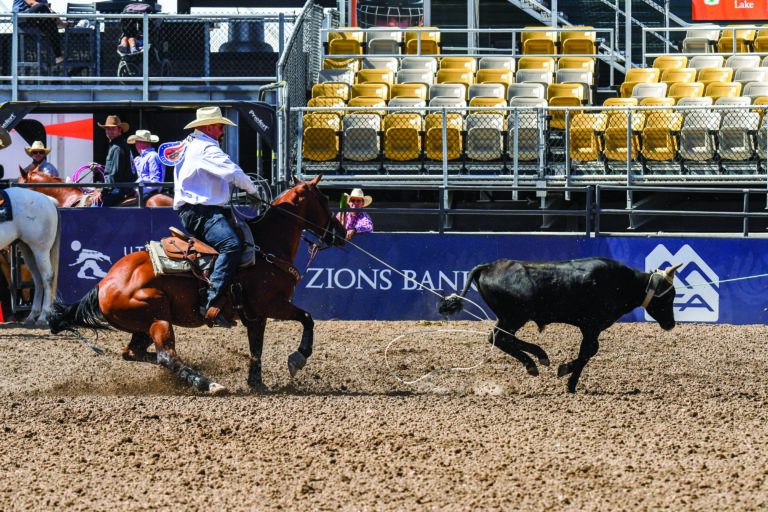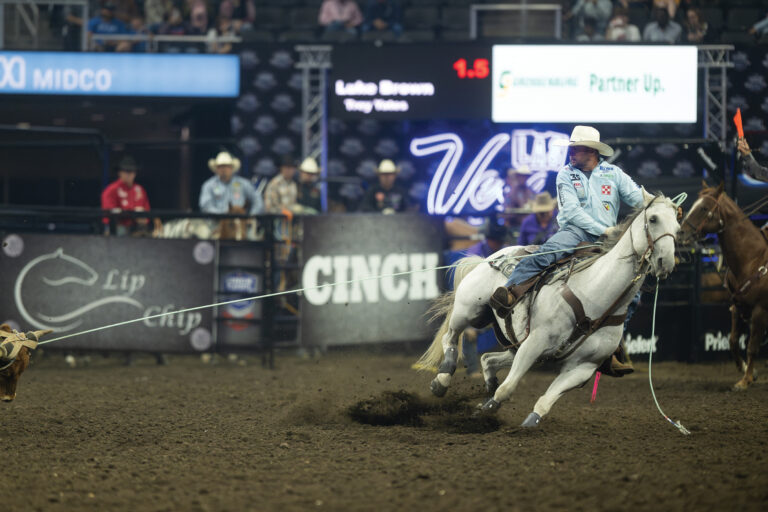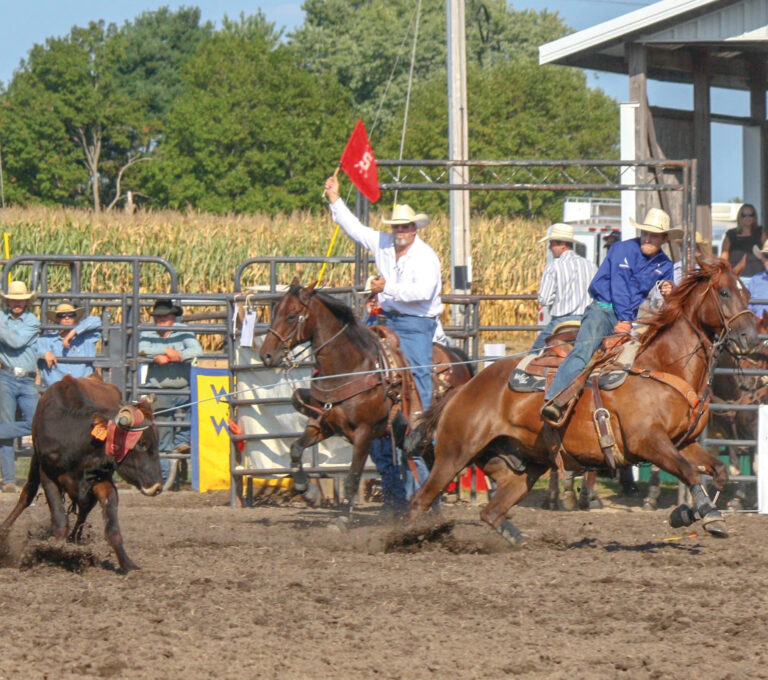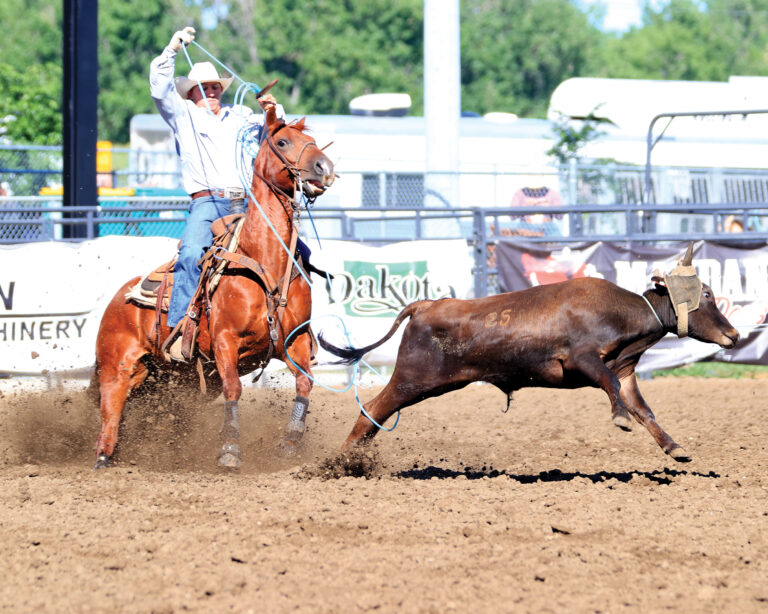Colorado native Darwin McGowan is an oil and gas pipeline inspector who spent most of 2018 working in Fort Lupton, where he also expects to spend most of this year. When the 5 header is not working, he’s usually roping, including wintering when work allows in Queen Creek, Arizona. McGowan, who’s 69, calls Bethany, Oklahoma, home.
Q: What’s it like to be an oil and gas pipeline inspector?
A: It’s a great job, because you get to spend most of your time in your truck.
Q: How long have you been at that?
A: I started doing it in 2010, and since then have worked in North Dakota, New Mexico, Oklahoma and Colorado.
Q: You work long hours. But that also allows you chunks of time to take off and rope, right?
A: We usually work six days a week, 12 to 16 hours a day. That allows for some team roping timeouts during the year. I typically work seven or eight months a year, and am off four or five months. And yes, a lot of that time is spent roping.
Q: Do you still carry a dummy around in the back of your truck for work breaks?
A: No. I keep it where I stay now. Times have changed, and I’d be fired for roping the dummy on the job site.
Q: Talk about the role roping has played in your life.
A: Roping has connected me with lots and lots and lots of great people who have become my really good friends.
Q: The biggest check of your career was the $100,000 model that went with the win at the 2012 Reno Rodeo Invitational, when you headed for Brad Bottom. What did you do with that money?
A: I bought a really good horse—Fudge—with part of it, which is the horse I still ride today. I also paid $39,000 of it to the government in taxes. I worked seven days a week most of that year, so my tax bracket was the highest it’s ever been.
Q: What’s your second favorite win?
A: This last spring I won the #10 roping at the Patriot in Fort Worth with Kenny Van Pelt, and that paid $29,000 a man. That week I won a little over $36,000, including some money at a roping in Stephenville, Texas, too.
Q: Is there anything left on your roping bucket list?
A: Yes. My bucket list is to win a World Series Finale in Las Vegas. It was a huge win to win Perry’s (Di Loreto) roping in Reno. The Patriot was a pretty big deal, too. The money that goes with those big wins is great, but there’s a lot of prestige to being the winner that’s pretty cool, too.
Q: What’s your idea of a good roping, and how do you pick which ones are worth taking time off?
A: The high entry fee ropings are the best ones, because of the greater return. I feel like if it’s your day, it’s your day. A lot of us are not professional ropers, and if it happens to be your team’s day and you can reap some big rewards that makes it even more fun.
Q: You’re a dad and a granddad. Tell us about your daughter, Lynn, and grandkids, Laurel and Luke.
A: My daughter and her kids live in Seminole, Oklahoma. Lynn is a self-employed massage therapist. Laurel is a freshman at the University of Oklahoma in Norman, who’s studying physical therapy. Laurel’s a huge Boomer Sooner fan. Luke is a junior who plays center for the Seminole Chieftains High School football team, and first baseman for the Seminole High baseball team.
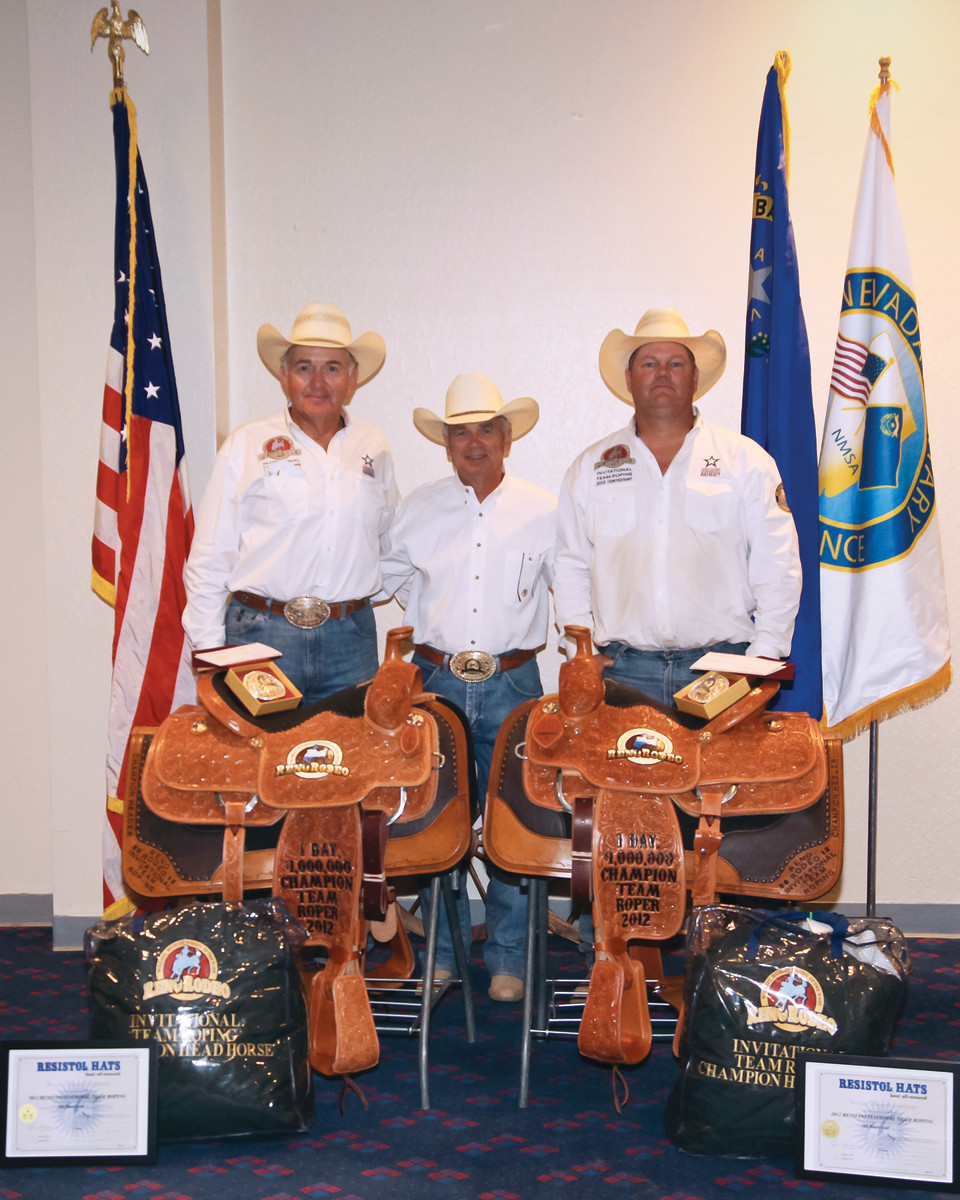
Q: Your steer roping, calf roping, team roping son Dixon died on May 10, 1997 at 23 on the day he graduated from Southwestern Oklahoma State University in Weatherford with a degree in business administration after falling asleep at the wheel. He was being mentored by your dear friend Arnold Felts, and was ranked seventh in the Professional Rodeo Cowboys Association world steer roping standings at that time. What do you miss most about dear Dixon?
A: I miss not being able to watch him completely grow up. I long for being with him and for being a grandpa to his kids. Dixon was a very quiet, polite kid who was very dedicated to his roping. Being able to visit with people who knew Dixon helps me get through every day. It’s because of him, and taking him to the junior, high school, college and pro rodeos early in his career that I made some great friends I still have today. I love hearing Dixon stories. It helps me get through life on a daily basis knowing that because of him I still have this huge nucleus of friends.
Q: How has losing Dixon changed your perspective and priorities in life, and do you have advice for people who tend to sweat the small stuff?
A: I live for today. I plan for tomorrow, too, but nothing after that, because life is not guaranteed. After Dixon died my whole perspective on life changed. Nothing’s a big deal anymore. People make small stuff into a big deal. Life is what it is, and you can’t change some things. Make the best of it, and go on with it. Enjoy every day and every conversation with the people closest to you. I don’t take anything for granted, and I look forward to enjoying every day. My family, friends and roping family are so important to me. I love people, and I’m not afraid to tell people who are dear to me that I love them. I appreciate those people every day.




